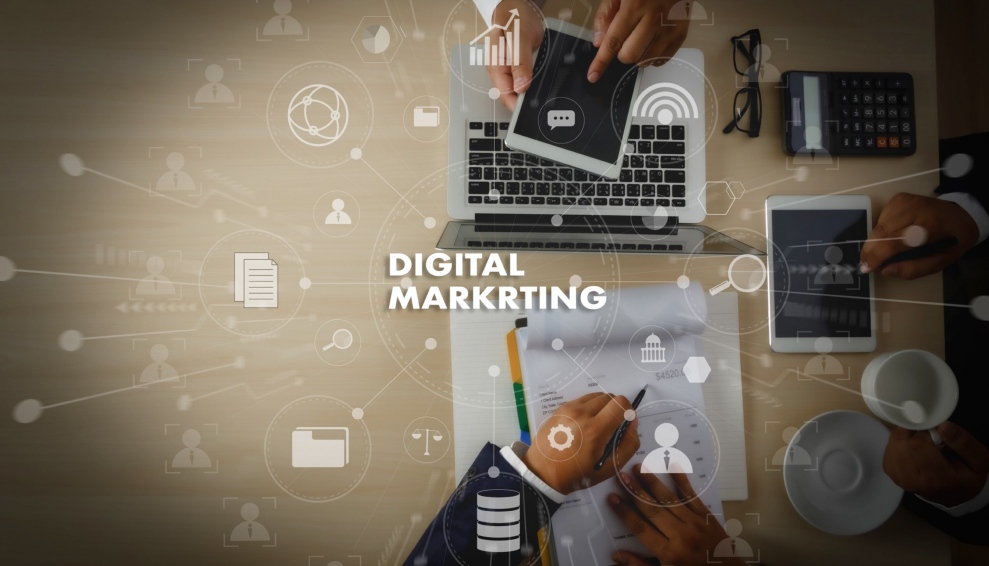When it comes to digital marketing, automation tools are no longer just a futuristic concept; they have become a fundamental part of the marketer’s toolkit.
Automation not only enhances efficiency but also brings a level of sophistication and precision to marketing campaigns that were previously unattainable. To explore its applications further, here’s a look at how automation tools are transforming the field of digital marketing, backed by facts and recommendations that may not be commonly known.
The Emergence of Automation in Digital Marketing

The digital marketing world is inherently fast-paced and dynamic, with an ever-growing need for more efficient and effective strategies. This is where automation tools step in. They are designed to automate repetitive and time-consuming tasks such as email marketing, social media posting, and ad campaigns.
But apart from streamlining repetitive and time-consuming tasks, there are several other ways in which automation tools have impacted the field of digital marketing. These are as follows:
Enhanced Personalization and Targeting
One of the most significant impacts of automation in digital marketing is the ability to personalize content at scale. With advanced data analysis capabilities, automation tools can segment audiences more precisely and tailor messages to meet the specific needs and interests of different groups.
This granular approach to targeting not only increases the relevance of marketing messages but also boosts engagement rates. For instance, automated email marketing campaigns are known to result in a 70.5% higher open rate and a 152% higher click-through rate compared to standard emails, as per Campaign Monitor’s data.
Streamlining Marketing Operations
Automation tools streamline various aspects of marketing operations, from lead generation to customer retention strategies. They allow marketers to set up triggers based on user actions, ensuring timely and appropriate responses.
For example, a user visiting a particular product page can automatically receive targeted emails or ads related to that product. This streamlined approach not only saves time but also ensures a cohesive and consistent marketing effort.
Other Benefits and Recommendations

Here are some other benefits of using Automation tools in the field of digital marketing:
Predictive Analytics for Future Planning
Beyond just automating tasks, some sophisticated automation tools now incorporate predictive analytics. This feature uses historical data to forecast future trends and consumer behaviors, allowing marketers to plan more proactive and strategic campaigns.
Automated A/B Testing for Optimized Results
While A/B testing is a known practice, automating this process can significantly enhance its effectiveness. Automated A/B testing can simultaneously test multiple variables, providing quicker and more accurate results to optimize marketing strategies.
Integration with Customer Relationship Management (CRM)
Integrating automation tools with CRM systems can create a more seamless customer journey. This integration ensures that all customer interactions, from initial contact to post-sale service, are tracked and managed effectively, leading to improved customer experiences and loyalty.
Data-Driven Insights
Marketing automation tools provide valuable data on user interactions, allowing marketers to make informed decisions. It helps identify audience preferences, optimize campaigns, and improve overall performance.
Consistent Branding
Automation tools maintain a consistent style across marketing channels, including visuals, content, and communications. This consistency enhances brand reputation in the competitive digital space.
Social Media Integration
Social media automation tools enable scheduled posts across platforms. Marketers can create content in advance, post at optimal times, and engage with audiences more efficiently. This results in better social media presence and increased engagement.
Lead Nurturing and Generating Quality Leads
Using automation tools allows marketers to nurture leads at every stage of the customer journey. For instance, when a user downloads a brochure from your website, marketing automation can automatically send personalized follow-up emails based on their interactions.
This personalized approach increases the chances of conversion. Furthermore, 86% of marketers believe that marketing automation has improved lead quality. By analyzing user behavior and personalizing content, automation tools help attract and retain high-quality leads.
The Challenges and Ethical Considerations

While the benefits are substantial, there are challenges and ethical considerations in using automation tools. One major concern is the potential for a lack of personal touch. Marketers must balance automation with human interaction, especially in customer service and content creation.
Additionally, data privacy and security are paramount. This is one of the most crucial considerations when it comes to using automation tools in digital marketing. Transparency and consent are absolutely essential. Hence, marketers must always inform users about data collection and usage beforehand.
Moreover, with automation tools handling vast amounts of personal data, marketers must ensure compliance with regulations like GDPR and prioritize data security to maintain consumer trust.
We have discussed some other challenges and ethical considerations of using Automation tools in digital marketing:
Quality vs. Quantity
Using automation tools can help to generate large volumes of leads but not all of them will be high quality. Focusing on the quantity of leads as opposed to quality can harm conversion rates. Hence, marketers should prioritize lead quality along with quantity to build meaningful relationships with customers.
Customer Experience
Overuse of automation tools can lead to impersonal interactions and can make brands seem robotic and detached. This spoils the consumer’s experience with the brand and results in a loss of authenticity. Hence, organizations should only use automation to enhance personalization not replace genuine human connection.
The Future of Automation in Digital Marketing

Looking ahead, the role of automation in digital marketing is set to become even more significant. Advances in AI and machine learning are expected to introduce even more sophisticated automation capabilities.
As per Gartner’s prediction, by 2023, 40% of infrastructure and operations teams in large enterprises will use AI-augmented automation, resulting in higher IT productivity. We have explored some of the predictions and trends below:
Automating High-Value Actions:
Brands will move beyond automating repetitive tasks. They’ll focus on automating quality customer experiences, especially as consumers prioritize personalized interactions.
Marketing, Sales, and Success Alignment:
Teams (marketing, sales, and success) will collaborate more closely. Automation workflows will account for user behavior beyond marketing, ensuring a seamless customer journey.
Automation as a Vital Part of CRMs:
CRMs will integrate automation seamlessly. Sales professionals will leverage technology to close deals, enhancing efficiency and customer relationship management.
Across a Company’s App Stack:
Automation won’t be limited to marketing. It’ll extend across various business functions, optimizing processes and improving overall productivity.
Business Chatbots as Full-Time Agents:
Chatbots will evolve beyond simple responses. They’ll handle complex interactions, provide real-time assistance, and enhance customer support.
AI for Automated Decision-Making:
Artificial intelligence will drive data-driven decisions. Marketers will rely on AI algorithms for campaign optimization, targeting, and content recommendations.
Automating Data Collection and Reporting:
Automation tools will gather and analyze data efficiently. Real-time insights will inform marketing strategies and performance measurement.
Robotic Process Automation (RPA)
RPA will help businesses become more productive by automating repetitive tasks, reducing errors, and freeing up human resources.
Improve Efficiency and Productivity With Marketing Automation
Today, automation tools are not just transforming digital marketing; they are redefining it. By embracing these tools, marketers can unlock new levels of efficiency, personalization, and strategic insight.
In this process, it’s crucial to approach automation with a balance, ensuring that the human element of marketing remains intact. As we continue to navigate the ever-changing digital landscape, the integration of automation in digital marketing strategies is not just a trend – it’s a necessity for staying competitive and relevant in today’s digital marketplace.
For further support, don’t hesitate to get in touch with an experienced digital marketing agency.
Read Also:
- What Makes Automation Testing Essential For Retail?
- What Is YouTube Automation? Everything You Need To Know
- The Rapid Growth In The Global Industrial Automation Market























